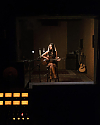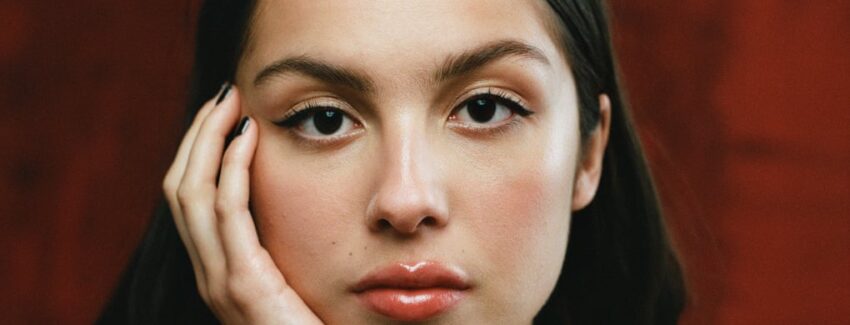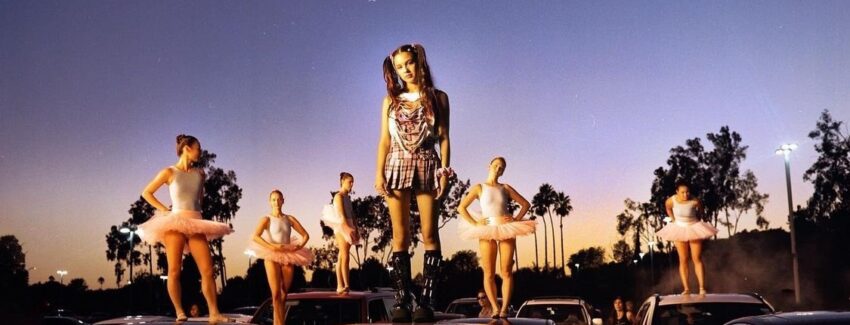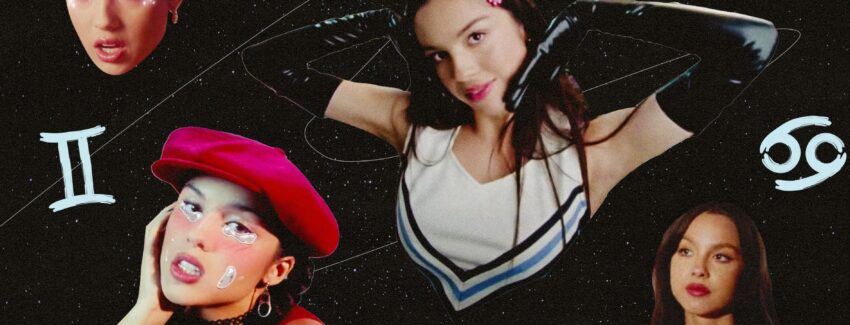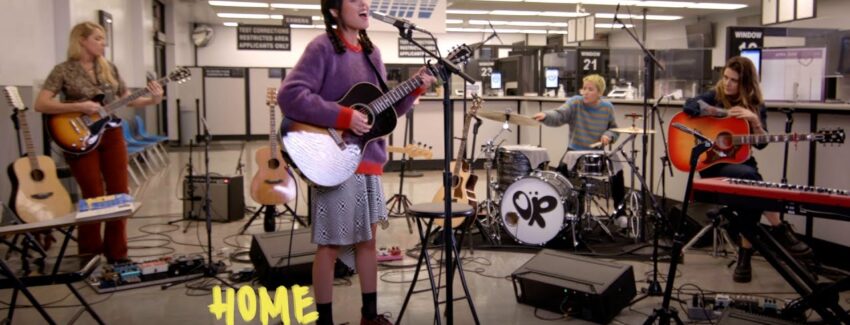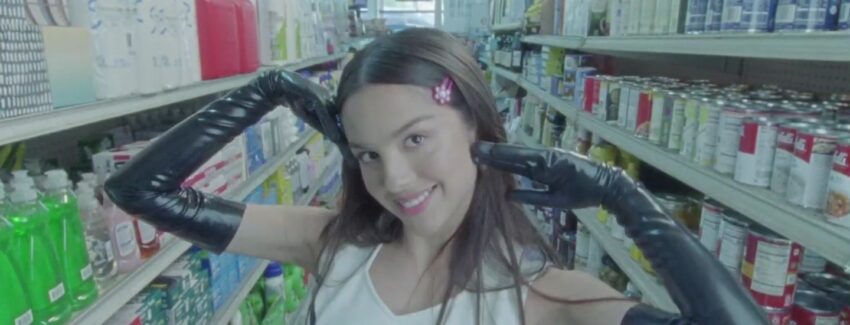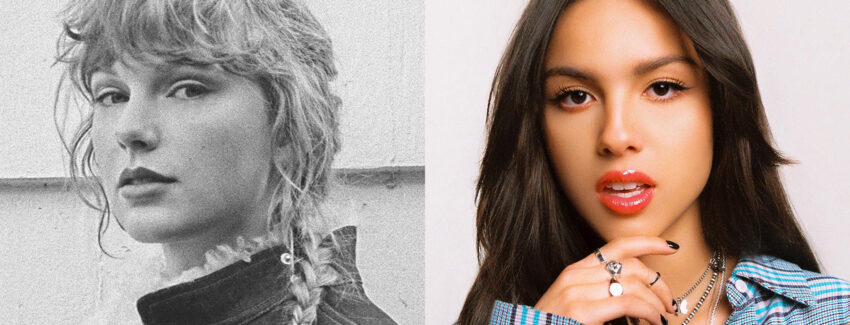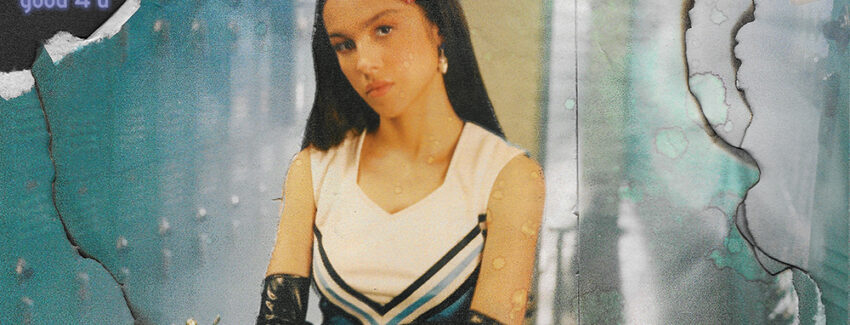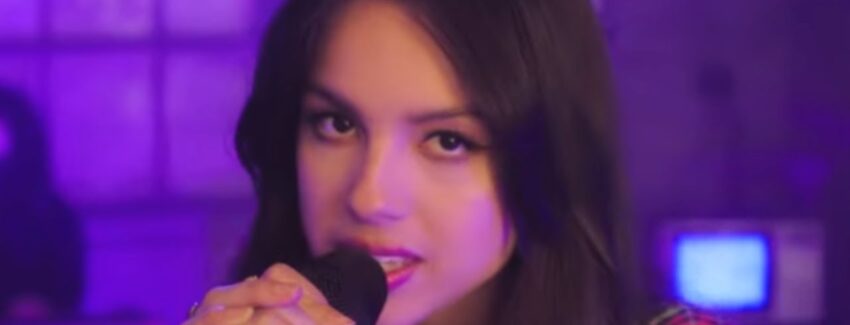She was a TV child star – then the single Drivers License made her a music phenomenon. Now on her second album, the singer is trying to make sense of her extraordinary young life
Of all the highlights of Olivia Rodrigo’s first two years as a pop star – breaking streaming records with her heartbroken debut single Drivers License aged 17; helping President Biden encourage young people to get vaccinated; winning three Grammys after she released her debut album, Sour – her set at Glastonbury 2022 still stands out. Rodrigo already had big plans for her Saturday afternoon performance: she asked Lily Allen if they could duet on her favourite song by the British pop star, her 2009 hit Fuck You. Then the day before Rodrigo was due to play, Roe v Wade was overturned, removing the federal right to abortion in the US. She was in London. “We were all like, we should stay here,” Rodrigo, 20, says when we meet in August in Pasadena, the LA–adjacent city where she lived as a teenager. “We were so devastated, crying because it felt so surreal and so awful.” Then Allen texted her. “She goes, ‘See the news? I guess we know who we’re gonna dedicate this song to.'”
Allen recalls Rodrigo pacing backstage, memorising her speech. On stage, Rodrigo said: “I’m devastated and terrified, and so many women and so many girls are going to die because of this,” then dedicated Fuck You to “the five members of the supreme court who have shown us that, at the end of the day, they truly don’t give a shit about freedom”, listing them by name. “We hate you,” Rodrigo said, then danced around with Allen, middle fingers flipped. It was perfect, meeting incomprehensible injustice with petulant anger. That’s what music’s for, says Rodrigo, “expressing your rage and dissatisfaction”.
If there was a backlash, she didn’t see it. Before she was a pop star, Rodrigo had been a Disney Channel actor since the age of 12, most notably a lead in the meta mockumentary High School Musical: The Musical: The Series, in which a group of teenagers stage a theatrical production of the Zac Efron juggernaut. The Disney–to–pop pipeline is well trodden, and it usually takes a long time for young women making that transition to find anything close to free expression, straitened by America’s puritanical double standards and the commercial imperative/threat to be a good role model. (Historically it has arrived in a repressed explosion of latex and panting, long before the considered political statements.)
Before Rodrigo’s set, she considered her many “young girl fans, which I always think about”, and concluded: “That’s actually why it’s so important – I would love, if I was a little girl, to see someone stand up for future–me like that.” (Allen can testify to her young fan contingent: when she got Rodrigo’s invitation, she says, “my daughter saw the email and was like, ‘If you don’t do it, I will kill you.'”) Even when Rodrigo was at Disney, she would tweet her anger about issues such as Trump’s various misdeeds, or the murder of George Floyd. Similarly, if there was kickback, she recalls, “I didn’t really pay attention to it or let it affect me.” Being a puppet, she says, “doesn’t work any more”.
Rodrigo and I meet in a cafe a few weeks after her rampaging comeback single, Vampire – the first taste of her second album – hit number one in the US. In the queue, she says this is her “favourite joint” because it’s where Timothée Chalamet’s character works in Greta Gerwig’s Lady Bird. More significantly, it is where she found out, at 16, that she had landed High School Musical: The Musical: The Series (having previously starred in Disney’s Bizaardvark, about two offbeat tween bloggers). Rodrigo orders an iced chai latte and points out the table where she was revising for “chemistry or something bad” when she got the call. She would never attend real high school, instead studying on the sets of both shows.
Rodrigo, a music nut since she was little, was also a budding songwriter with a readymade audience for the demos she shared online, though she worried that they wouldn’t connect because her life was so unusual. (It’s striking that she sort of picks a film set for us to meet on.) Then Disney execs invited her to write an original song for her High School Musical: The Musical: The Series character. After the piano ballad All I Want went viral, Rodrigo sought a record deal. Unlike her Disney forebears Miley Cyrus, Selena Gomez and Demi Lovato, she chose not to make (inevitably sanitised) music for the corporation’s in–house label, and picked Interscope/Geffen because they were the only label she met that perceived her as a songwriter, not a pop star, and didn’t blow smoke up her ass.
If High School Musical: The Musical: The Series made Rodrigo a star to gen Z, Drivers License, released in January 2021, made her a household name. Another piano–led epic, albeit with the very un–Disney climax “I still fucking love you”, it provided mass catharsis during that desolate winter lockdown and hit number one worldwide. Her first live performance was at the Brit awards, where she met her childhood hero Taylor Swift; her second was on Saturday Night Live just days later. She wrote her Grammy–winning debut album with producer Daniel Nigro, wielding balladry and pop–punk to excavate her first heartbreak.
Rodrigo was the first pop act to break through to superstardom since Billie Eilish (and the first Filipina–American), though the immediacy of her success meant she didn’t have the buffer of a rise through tastemaker blogs like Eilish – or even Swift’s country–music cosseting – to find her feet. She also still had to graduate from virtual high school… and film another season of High School Musical: The Musical: The Series. When I first interviewed her, back in 2021, she was studying for finals, and ultimately got a 4.1 grade point average (essentially A+). “I did my AP classes [university–level courses offered at high school]. I was very focused on it,” she says as we head to an outside bench. “I was a good student.”
I’ve always struggled with wanting to be this perfect American girl and the reality of not feeling like that all the time
And not since Britney Spears had a former Disney star come to dominate pop culture so suddenly – Sour gave Rodrigo a second number one in the pop–punk rager Good 4 U – though by comparison Rodrigo had total control over her career, demonstrating the evolution of the archetypal female pop superstar over the past 25 years. She bristles at the idea of being a “pop star”, yet seems a good student of her predecessors – the cautionary tales and the stakes of failure – and managed her supercharged ascent with striking caution. Rather than play arenas just because she could, Rodrigo toured smaller theatres to develop her fledgling stagecraft. She seldom intentionally made headlines beyond her musical activity. It wasn’t that calculated, she says. “It’s not like I was like: ‘In order to have a sustainable career, I’m gonna roll it out slowly and this and that.’ I kind of had overnight success. I’d been working on songs for years and preparing for that moment for a long time. But in many respects it was very instantaneous, and so taking things slower was my way of coping.”
That approach was partly induced by the media obsession with the breakup behind Drivers License, which felt fairly disgraceful given that it essentially involved kids barely of age. (Rodrigo’s assumed ex, her High School Musical: The Musical: The Series co–star Joshua Bassett, ended up hospitalised with heart failure from the stress caused by press scrutiny.) As gossip vultures swirled, Rodrigo disconnected from social media and pledged to remain “low–key” in her fame. Today, no one notices the slight 20–year–old in a black T–shirt and long khaki skirt she found on Depop – leaving her sweet security guard in peace with the crossword. “All of the drama that surrounded Drivers License was baptism by fire,” she says. Cleaving her personal identity from her celebrity persona became a priority she worked through in therapy. “I’m happiest when I can separate the two.”
Rodrigo calls her debut headline tour the “ultimate practice” in maintaining that distinction, learning to equally enjoy being a performer and then being “able to be in my bus alone”. She’s conscious of the risks in that potential gulf. “I think that’s why so many artists do drugs, because they’re trying to recreate that high of being on stage.”
When Rodrigo released Sour, she said she was proud that it contained the kind of messy emotions that young women aren’t meant to exhibit, a mission statement that her apparently uninhibited rise bore out. It seemed as though she had beaten the game. But her second album, Guts, starts with All–American Bitch, a satirical diatribe against the expectations and double standards she still feels bound by. “I’ve experienced a lot of emotional turmoil over having all these feelings of rage and dissatisfaction that I felt like I couldn’t express, especially in my job,” she says. “I’ve always felt like: you can never admit it, be so grateful all the time, so many people want this position. And that causes a lot of repressed feelings. I’ve always struggled with wanting to be this perfect American girl and the reality of not feeling like that all the time.”
A committed teenage perfectionist, she finds it hard to express messy emotions in general, she says. Rodrigo is noticeably more at ease than when we spoke in 2021, when she was still bright with media training, though she’s clearly tired, repeatedly apologises for having a “mushy” brain, and hesitates at specifics. Writing songs is less about expressing herself and more about finding out how she feels, she says. “A song is so not good if I can tell it’s coming from a disingenuous place. It’s like a little lie–detector test, a polygraph.”
When Rodrigo started attempting to write her second album, the polygraph wouldn’t even twitch. She had thought of the title Guts – as in instinct, conviction, life’s dank parts – when writing Sour. But the songs didn’t come as easily. “There were a good few months where I would sit at the piano and all I would think about was how I was never going to make something as good, or all the mean things that people on Twitter would say, or how I wasn’t as good as … whatever,” she says. Last August, she started sessions at Daniel Nigro’s garage studio, where they made Sour. She eschewed fancier surroundings: “Adding a new studio to the mix would have meant more anxiety and doubt. Like: ‘Oh my God, we’re spending thousands of dollars and I feel like I’m not writing anything good.'” Some days, she just went in and cried. She says this while smiling, but it sounds punishing. “It’s the antithesis of creativity,” she admits.
Also the antithesis of creativity: the current climate where inspiration can quickly become a copyright issue. Sour was plagued by it: after listeners noted similarities between Rodrigo’s song Deja Vu (an ecstatic skewering of her ex for rehashing their favourite pastimes with his new girlfriend) and Taylor Swift’s Cruel Summer, as well as between her Good 4 U and Paramore’s Misery Business, Rodrigo ended up giving both acts 50% of the credits and royalties for the respective tracks. (Elvis Costello was more sanguine about her song Brutal’s echoes of his Pump It Up: “It’s how rock and roll works,” he tweeted in response to criticism of her. “You take the broken pieces of another thrill and make a brand new toy.” See also Rodrigo’s prescient yell in Deja Vu: “Everything is all reused!”)
At the time, she said it was “disappointing to see people take things out of context and discredit any young woman’s work”. Did the potential for similar scrutiny make her second–guess writing Guts? She grows vague. “I was so green as to how the music industry worked, the litigious side … I feel like now I know so much more about the industry and I just feel … better equipped in that regard. It wasn’t something I thought about too much.”
Some fans are convinced that Vampire – specifically the yelled “bloodsucker, fame fucker, bleedin’ me dry like a goddamn Vampire!” – is about Swift, especially given that signs of their budding friendship vanished after the credits issue. (Swift recently invited Sabrina Carpenter, the rumoured other party in the Drivers License heartbreak, to support her Eras tour.) “How do I answer this?” Rodrigo whispers at the table when I ask her. “I mean, I never want to say who any of my songs are about. I’ve never done that before in my career and probably won’t. I think it’s better to not pigeonhole a song to being about this one thing.” She laughs nervously (she often laughs nervously). “I was very surprised when people thought that.”
Reading Julia Cameron’s creative guide The Artist’s Way pushed Rodrigo past self–criticism, and taking breaks with Nigro’s baby gave her perspective. “When you’re worried – like, ‘Oh my God, what’s Pitchfork gonna think?'” she says with strangled mockery – “you see a baby and you’re like, this is love and light right here.” She and Nigro brought in new co–writers to freshen their process, and because Rodrigo wanted to learn from other people: “It’s really hard to learn songwriting from a book.” Her musical hero Jack White also wrote to her offering three bullet points of advice, including to write what she wanted to hear on the radio. “I was going through such a hard time,” she says, “but for some reason, reading that, I was like, ‘Oh my God! That’s exactly what I need to do.'”
Rodrigo sought to channel the energy she had felt live as fans rampaged to her heavier songs – “the most invigorating feeling ever”. Although there is some of her trademark balladry on Guts, it mostly features tart, agitated rock that draws from British indie (Wet Leg), US alternative (Beck, Smashing Pumpkins) and the feminist punk that Rodrigo’s mum introduced her to as a kid (the Waitresses). (A good student, again.) Rodrigo’s frustration – with men, gender norms, her job – boils over with exhilarating immediacy.
I worked my whole childhood and I’m never going to get it back. I didn’t go to football games, I didn’t have a group of girlfriends that I hung out with after school.
It’s extremely funny in parts, delivered with gusto by a singer who has sometimes been criticised for sounding stagey, but who knows how to sell a line–read: “Yes I know that he’s my ex / But can’t two people reconnect? / ‘I only see him as a friend’ / The biggest lie I ever said!” goes the nihilistic chant Bad Idea Right?, which throbs with the defiant high of intentional self–sabotage and concludes: “I just tripped and fell into his bed!” Rodrigo puts the humour down to being happier than when she made Sour. “I’m not demolished by my first 17–year–old heartbreak. It’s fun to be playful and not take yourself too seriously.”
But Guts is also strikingly sad: disillusioned about the gap between expectation and reality; musing on social anxiety, exploitative relationships, the toll of idealisation. Thematically, it resembles Billie Eilish’s second album, Happier Than Ever, suggesting a consistent pathology to young fame. (When Rodrigo heard Eilish’s album, she felt: “Oh my God, this bitch read my diary!”)
There are several songs about being gaslit by chaotic older men. “Said I was too young / I was too soft / Can’t take a joke / Can’t get you off,” Rodrigo seethes on the spare Logical. Vampire is primarily about a romantic relationship with an older guy, and Rodrigo says the crescendoing rock opera mirrors her burgeoning revelations about being manipulated. Conflicted experiences with older men have been a recent theme in pop, with songs by Swift, Eilish, Demi Lovato and Phoebe Bridgers resonating with a post–#MeToo generation alert to exploitative power dynamics. Rodrigo demurs at calling her relationships abusive. “I don’t really know the exact definition. I’d just describe it as not great!” She laughs grimly. “Not ideal.”
Guts isn’t a breakup album, she clarifies. “It’s so much about growing up and finding your footing in the world.” One standout, the wall–of–sound lament Making the Bed, is about Rodrigo coming to distrust herself as newfound stardom briefly warped her priorities: pushing away the people who know her and “getting drunk at a club with my fair–weather friends” – all the living she had been doing in secret. “I was 19 and had all this zest for life but also was in this industry for the first time, and that can be kind of alluring: Ooh, there’s all these exciting people and exciting things, all these fancy, shiny new toys.”
What was she buying into? She hesitates again. “Like weird, interesting friends, or getting caught up in artificial interpretations of yourself. I say all this about separating person from persona, but it’s a strange thing when you become successful and get noticed for songs that are super raw and intimate, so on a certain level you feel like people really know you – and they do, but not in the way that your friends or family would know you. It’s a little bit of a tricky situation.”
She asks what the question was and apologises again for feeling “mushy”. “There’s such an archetype of what a ‘pop star’ should be,” she continues. “I never really thought of myself as that, it’s the term that people throw around. Things you should wear and do and how you should be accessible at all times. And ‘date this person and do that’.” I wonder if she watched The Idol, the disastrous HBO drama about a young female singer, the machinations of the pop industry and its festering slick of hangers–on. “Oh no,” she says. “I don’t have the desire to. I remember walking out of Barbie and being like, ‘Wow, it’s so long since I’ve seen a movie that is female–centred in a way that isn’t sexual or about her pain or her being traumatised.'”
That’s another reason why Guts was harder to write, says Rodrigo: being forced to confront uncomfortable truths about her own life. She also had to navigate how to write about the pitfalls of fame while remaining relatable. Even putting “fame–fucker” in Vampire, she says, “I was like, ‘Oh my God, I’m gonna isolate people.'”
When Rodrigo turned 20 in February, she says she became overwhelmed by sadness: “Like, ‘Oh shit, I worked my whole childhood and I’m never going to get it back.’ I didn’t go to football games, I didn’t have this group of girlfriends that I hung out with after school. That’s kind of sad.” She says this blithely, with a shruggy caveat: “Overshare.”
As a young child, Rodrigo was determined to make it. Her unshowbiz teacher mum and therapist dad supported her fruitless auditions, but one day suggested she quit if she didn’t land the next one. (“My family is so wonderfully removed,” she says. “They’re so supportive, but zero pressure – they have been since I was a little child actor.”) Then she scored the lead in an American Girl doll franchise movie. By 12, she had made it to Disney. When we spoke in 2021, I asked Rodrigo if she had felt looked after there. She politely declined to answer, calling it a “hot topic” and fearing she would “get my foot in my mouth”. She’s since left after Disney allowed her to break her contract for High School Musical: The Musical: The Series‘s fourth and final season. I ask if she can answer now. “I can’t believe I said that,” she says quietly. “I think it’s an interesting situation to be so young working at that level. It’s really easy to feel trivialised or not taken seriously or … I don’t know, my mind is so mushy right now,” she whispers, then holds her throat in both hands and blows out her cheeks.
“It’s just really hard to be a kid and an actor, and you can feel maybe a little taken advantage of sometimes,” she says. “The responsibility, feeling criticised in public, feeling like you have to work so much and you see your friends who can go to pool parties and hang out, and you’re stuck on set.” But, she insists, “I wouldn’t have it any other way.”
Rodrigo still seems worried about getting her foot in her mouth. A few days after we meet, she emails me to clarify her gratitude for Disney giving her “such an amazing opportunity” and facilitating her early departure. “I definitely felt how stressful it was to have two full–time jobs – songwriting and acting – and to do them both well,” she writes. “I always knew I wanted to pursue music and focus on songwriting, but at that time it proved difficult to balance both obligations.”
If she has any explicit grievances with her status, it’s how her perceived maturity can be exploited by an industry that puts a premium on women’s youth and beauty. “They always used to praise me for being this precocious young girl,” she says, in Pasadena. “That’s so much of the praise I get, that I’m so impressive cos I’m so young doing this.” Guts closes with a slow, sad song called Teenage Dream that couldn’t be further from Katy Perry’s euphoric, life–is–a–buffet banger of the same name. It’s about Rodrigo’s realisation “that it wasn’t always going to be that way and wondering what I would lose or how I would become less attractive in certain ways to people”.
She internalised that mentality. “Last time you talked to me,” she says, “I just remember thinking, ‘I’m so precocious, I know what I’m doing, I got all this under control, I’m so mature.’ And the older I get, the more I realise that I know very little.”
Nevertheless, Rodrigo is gambling on losing her precocity, determined that her music should reflect her burgeoning adult reality. Making Guts “a little dirtier, maybe, drinking, a little sexier was never a calculated decision. It never has been. They said that about Sour: ‘A Disney kid saying “fuck” in a song! She did that to break from the mould!’ No, I did that because that’s how I talk.” She’s clear that she doesn’t regret any of what she sings about on it. “I wouldn’t have learned it otherwise. You have to go through something to learn about it. You can’t be told that it’s not going to work.”
Guts features several lyrics about drinking, but Rodrigo isn’t yet of age in the US. Do bars make exceptions for celebs? “You know, every place is different,” she blurts. “Who knows!” Being so recognisable, surely she would struggle to have a fake ID. “No, I know,” she laughs. “I’m just so scared. I am such a goody two–shoes. If someone gives me alcohol at a restaurant, I’ll be like, ‘Thanks!’ But if they’re like: ‘Do you have an ID?’ I’m like …” – she gasps – “‘No, no, I’m 20, I promise, I’m sorry!’ I’m such a bad liar.”
I feel super mature in some ways and super stunted in others cos of how I’ve grown up. How am I ever going to learn if I can’t make a mistake in the privacy of my own life?
But after “swinging too far in the direction of social life”, her new year resolution was to spend more time alone. “I realised, in my old age of 20, that I would rather spend time with myself than people who make me weary or cause me anxiety or drag me down.” She says, caveating her cheesiness, that she had some revelations about love and friendship and trust. “That’s what was so surprising, that you can succeed in all these crazy ways and still feel so insecure and like no one will ever like you or love you.”
She’s tried to turn her relentless self–criticism into something more productive. “I grew up with the idea of tortured artists and that there was some nobility in that,” she says. “I don’t think that any more.” I wonder if she was previously drawn to chaotic men as a surrogate outlet for the messiness she couldn’t express. “Completely!” she says. “It’s a classic good–girl, bad–boy trope! Sometimes when you feel you have to be perfect all the time, you have to find the chaos in your life a different way.”
When Vampire finally came out, Rodrigo tried to remember that Drivers License set an impossible bar. “It’s not attainable to try to beat yourself,” she says. “It felt like lightning in a bottle. Anything public, charting, number ones, all the records – that’s just so beyond my control so there’s no point in worrying about it.” Nevertheless, the promotional grind is on. Bad Idea, Right? comes out the week after we meet (it reaches No 6 in the UK and 10 in the US; Vampire subsequently leapfrogs it to hit number one in the UK). There are more music videos to shoot. Rodrigo recently bought a place in New York, though she’s hardly been there. (“My mom was just there sending me videos of her putting finishing touches on the furniture.”) One of her best friends studies in the city. Rodrigo hasn’t yet tried to crash a student party, but thinks she could. “I’m not like Kim Kardashian,” she says. “I’m not some crazy super famous person, so I can make it work.” Some celebs get people to sign NDAs when they party together, but Rodrigo wouldn’t. “Maybe I should,” she jokes. “It would make my anxiety a lot better!”
But the point of Guts, she says, is about being able to learn from your mistakes. It’s no small order: as we meet, Rodrigo faces minor criticism for contributing to overtourism by holidaying in Hawaii (prior to the Maui fire). “Nobody can be perfect, ever,” she says. “It’s so funny because I am so strait–laced. But it’s hard. I feel super mature in some ways and super stunted in others cos of how I’ve grown up. I have such curiosity to learn and grow and experience things, and how am I ever going to learn if I can’t make a mistake in the privacy of my own life?” (Rather than the record–breaking singles, this may be Rodrigo’s specific pop legacy: the freedom to make mistakes and not have them be terminal.)
I wonder whether any other musicians have offered her advice about this very specific trial–by–fire. Eilish is “really sweet and supportive”, and Nigro has been at her side throughout. “But it’s a unique experience,” says Rodrigo. “There’s no rulebook. That’s the beauty and the anxiety of this job. You forge your own path.”
Guts is released by Geffen/Interscope on 8 September
